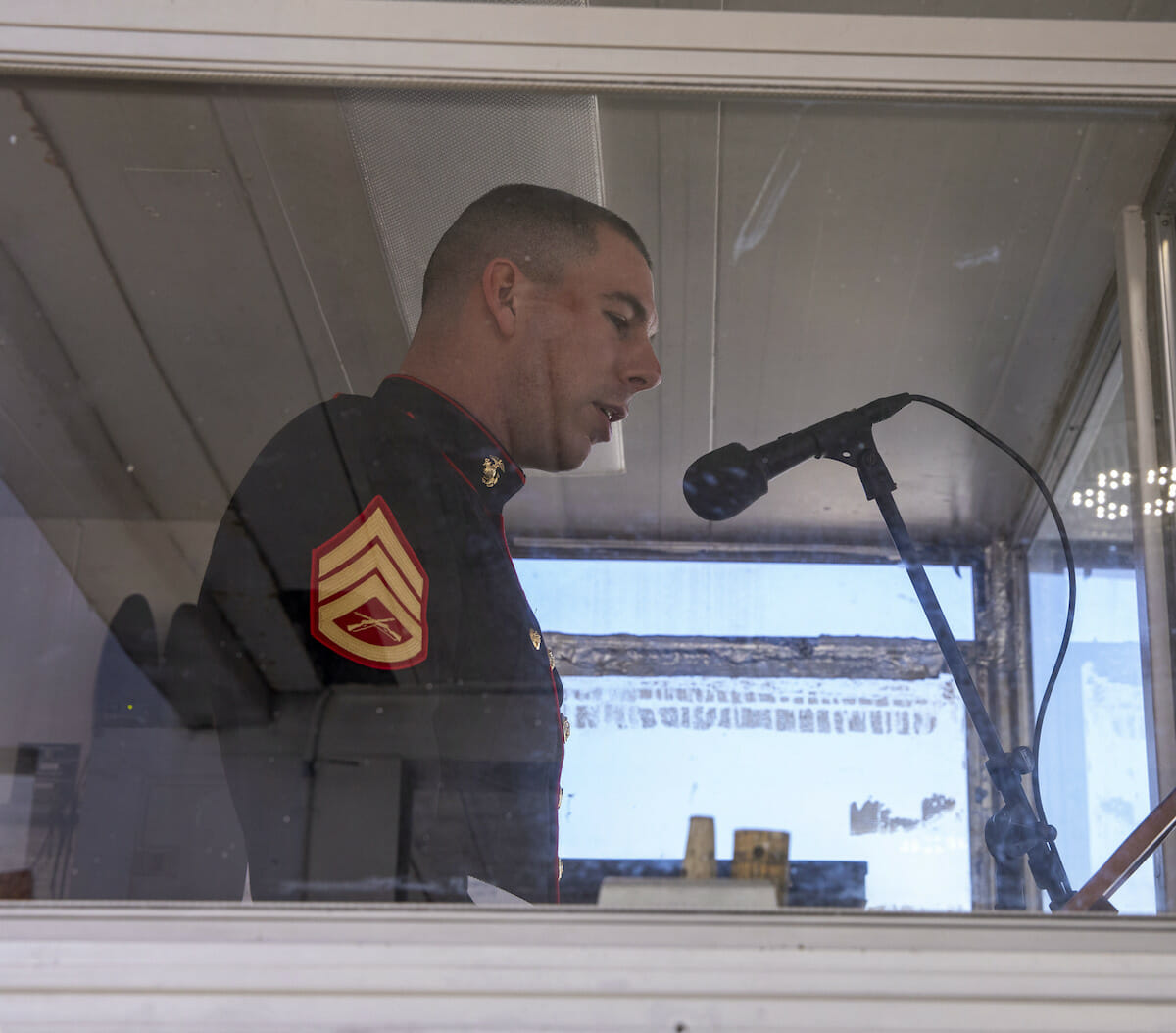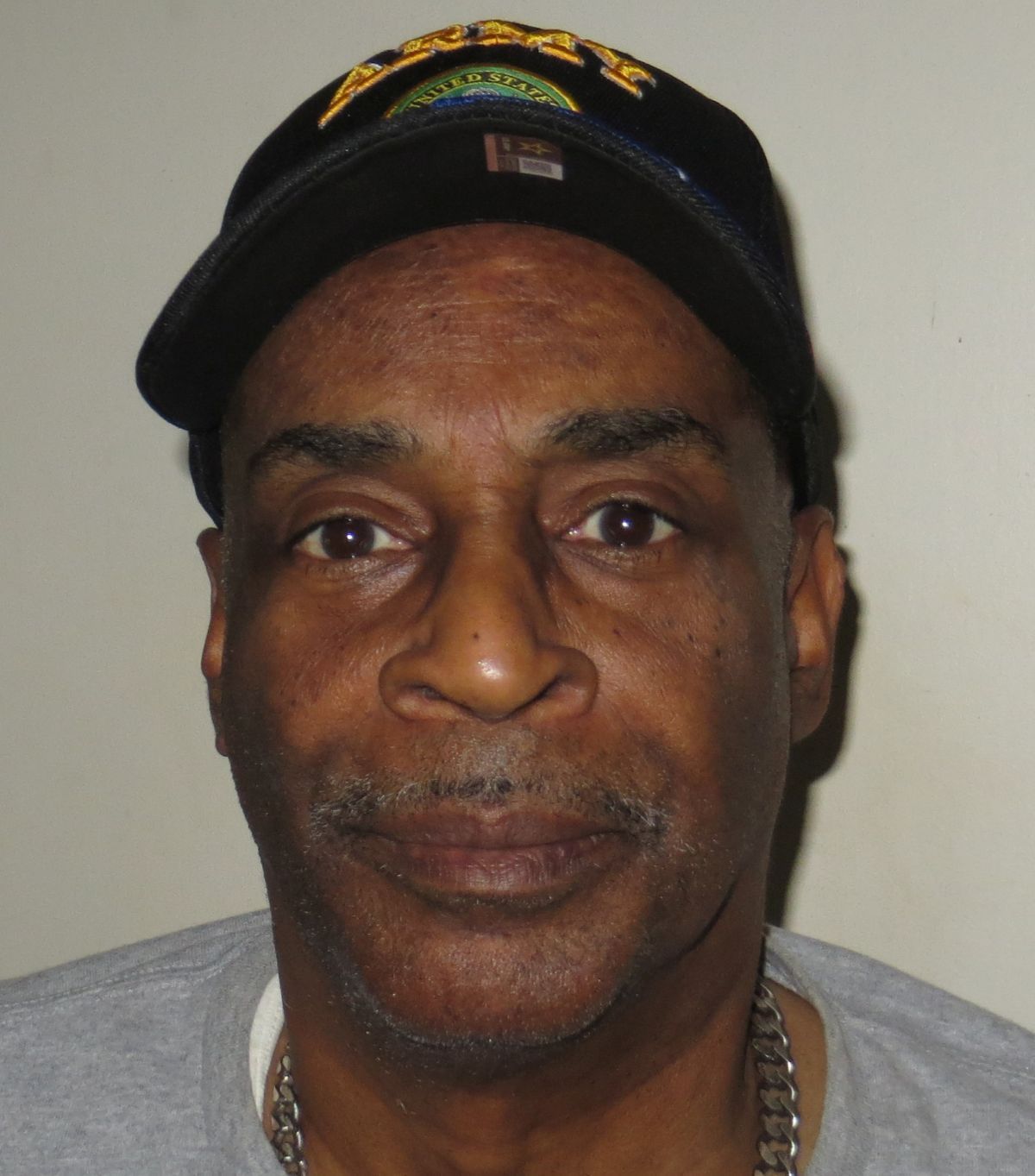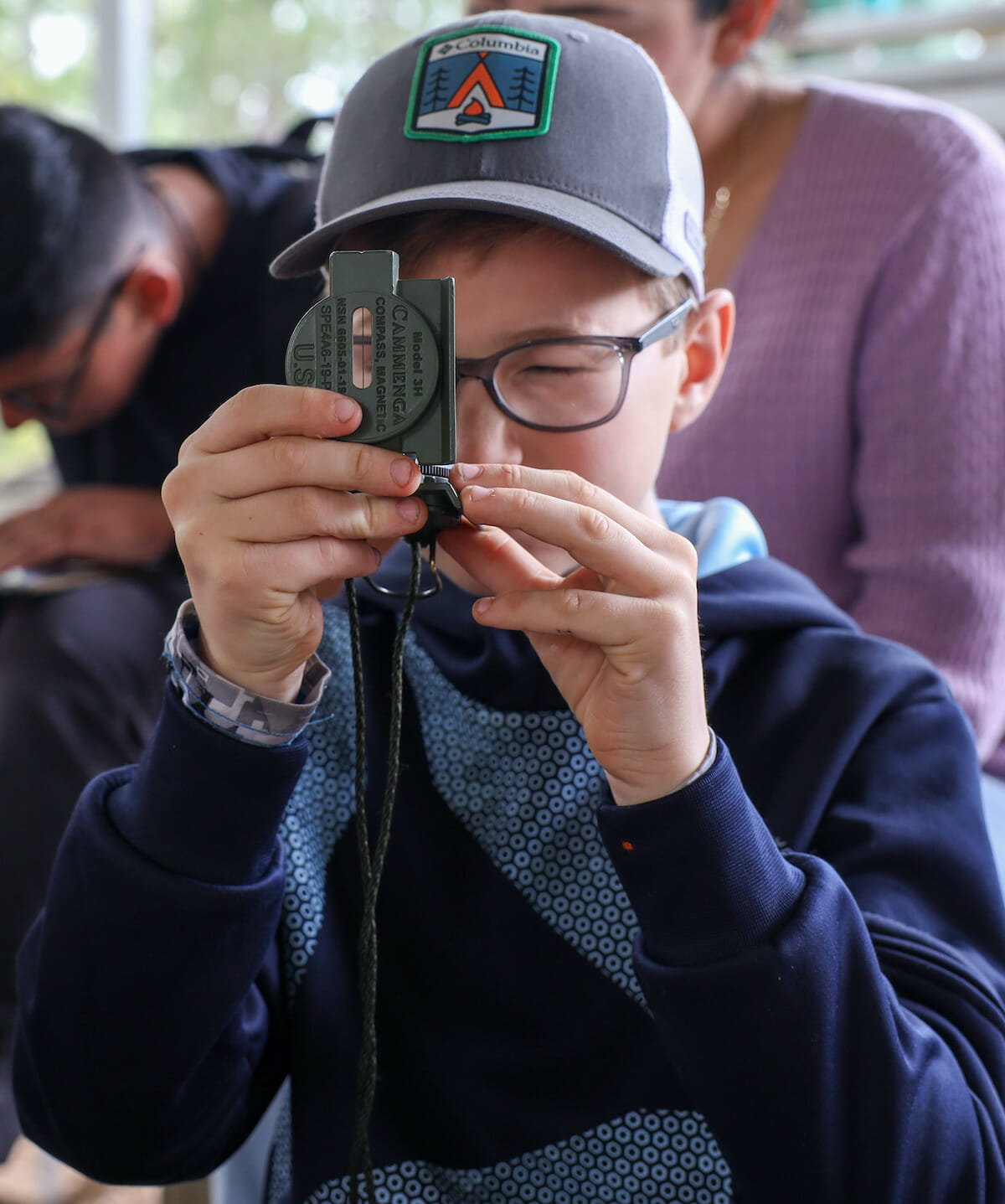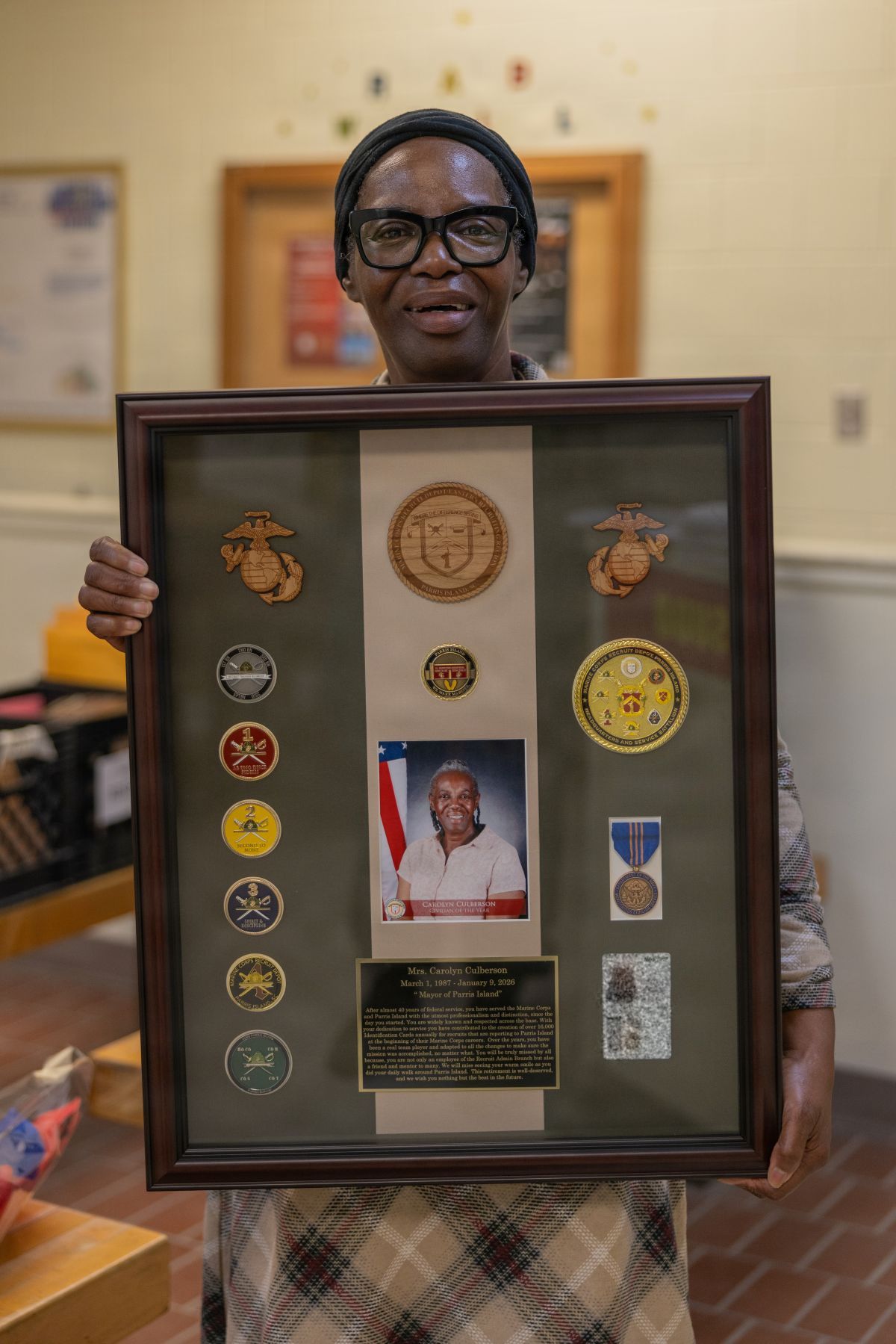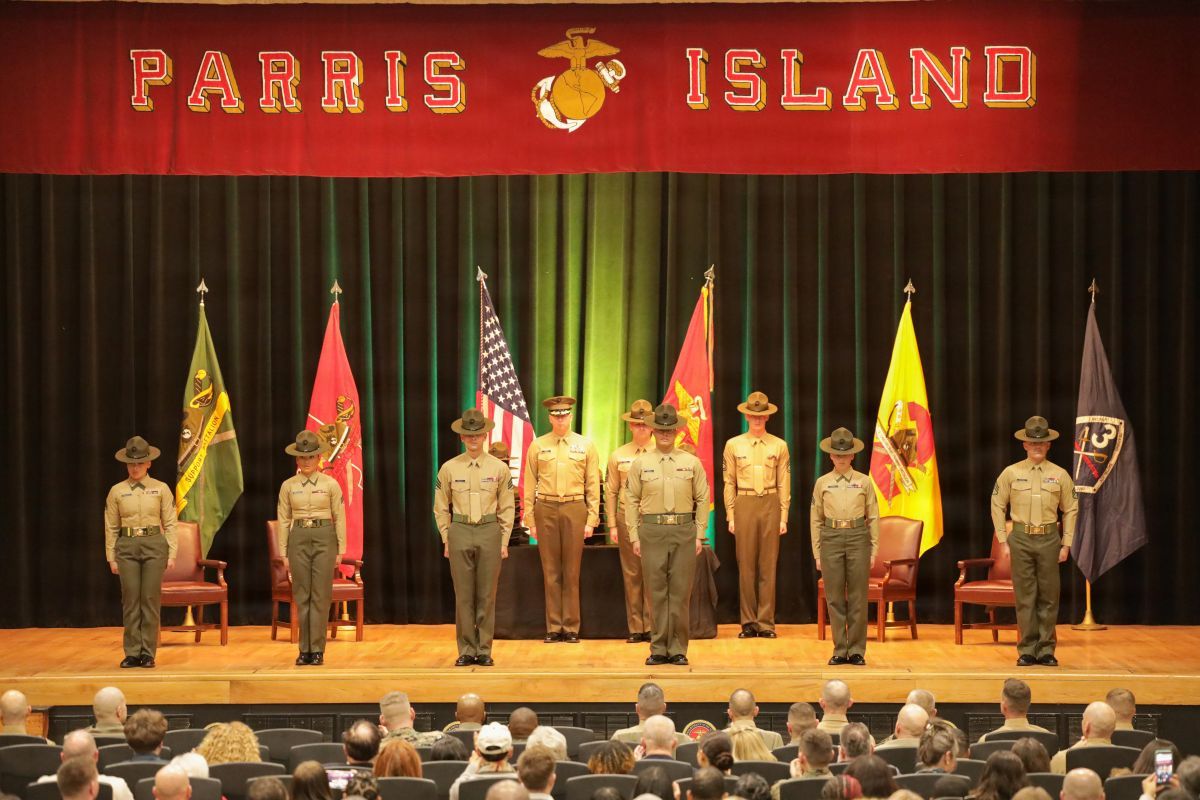“This job is more than just talking into a microphone.”
By Lance Cpl. Michelle Brudnicki, USMC
If you’ve ever been to Parris Island to pick up your new Marine, or watched a livestream of graduation, you’ve likely heard “The Voice.”
“The Voice” is a term used for the Marine who narrates the ceremonies held on the depot. But, as told by the Marines who hold the billet, it is so much more than that.
Staff Sgt. Christopher Davis, who has been aboard the depot since 2019, has held the billet for the last year. He was the narrator for every graduation on the depot during 2021 as well as countless retirement and change of command ceremonies.
“This job is more than just talking into a microphone.” Davis said. “Ten percent of ‘the voice’ is the mic and the other 90 percent is assisting the drill masters, or battalions with anything they may need for ceremonies.”
A drill instructor on a break from training cycles, is chosen to be the voice through an audition. Each of the training battalions offers up a candidate, and each reads from a different script to get a sense of how well they can articulate and deliver different types of speech. The Marine with the most clear and commanding voice is selected.
Staff Sgt. Mark Gulotta was the newest drill instructor selected to be the voice. He trained under Davis for a few weeks as a shadow after he passed the audition. He took over the role fully on February 25.
“I tried to do an announcer-type thing,” said Gulotta. “The drill master corrected me and suggested I just try my normal voice and sure enough it sounded a million times better.”

The sound of the voice is iconic in its own right. The tonality has a certain sound to it and the inflection is unmistakable. On the depot, it is a quintessential sound that is recognized no matter where you go.
“No one refers to you as Staff Sgt. Davis or Staff Sgt. Gulotta, they refer to you as ‘voice’,” Davis laughed. “Going through the gate – ‘How are you voice?’ ‘Voice, when are you going back to work?’; it’s always just ‘voice’. It eventually hits you that maybe you are doing something impactful, and that people care about what you do.”
As for the sound in itself, there isn’t a class or lesson these Marines attend to become the voice. It is something any Marine can perform, male or female, and is based in being able to speak clearly and articulate as you read.
“The sound comes down to the individual. My voice is rather nasally, and SSgt Gulotta’s voice is naturally deeper. Any voice can accomplish the same goal, it’s just a matter of being clear and concise with your sound.”
With the creation of the drill manual, a certain formality to ceremonies became expected. It introduced the way ceremonies are to be conducted down to every detail. With that, came the need for the job of a narrator.
“Everything during graduation is written into the order,” said Davis. “Nothing is done simply because we thought it looked or sounded nice.”
When he is not on the microphone, the voice is commonly found acting as the right hand man to regimental drill master. Both experts in the conduct and execution of ceremonies, they build off of one another. The voice can and will assist if the drill master is occupied.
“I bounce off of the drill master and he bounces off of me,” said Davis. “Everything he knows, I know. When he’s not here I can fill in and be where he needs me to be.”
Most drill instructors will not hold this billet during their time on the recruit depot. The duty spans one year, and there is only one drill instructor nominated per battalion when audition time comes around. It is a very unique experience for most, and a position that a Marine will remember for the remainder of their time in the Marine Corps.
“There’s only one voice,” Gulotta said. “There’s a million chiefs, a million senior drill instructors, drill instructors; but there’s only one voice.”
Most visitors who have ‘heard’ the voice, likely don’t quite remember it. The reciting of Marine Corps history, a Marine’s accolades and awards being listed off; this all fades into the background for people who are focused on their graduating Marine.That is the idea, according to Davis.
“The goal of the voice is to be heard, but never noticed,” Davis said. “You’re not a distraction, you’re simply adding to the ceremony.”
Though visitors may only hear the voice announcing their son or daughter’s platoon number on graduation day, the billet is so much more to those who have the privilege of holding it. According to Davis, the billet has allowed him to be there for Marines on their day, from the nation’s newest Marines, to the Corp’s most seasoned.
“As the voice, you are integral to someone’s last day,” Davis said. “Whether that’s the last day here on Parris Island, the last day being the command Sergeant Major, or the last day being in the Marine Corps for them; you are someone’s peace when it comes to a memorial ceremony. You give a sense of pride and a feeling of recognition that perhaps they haven’t previously experienced a day in their career.”

